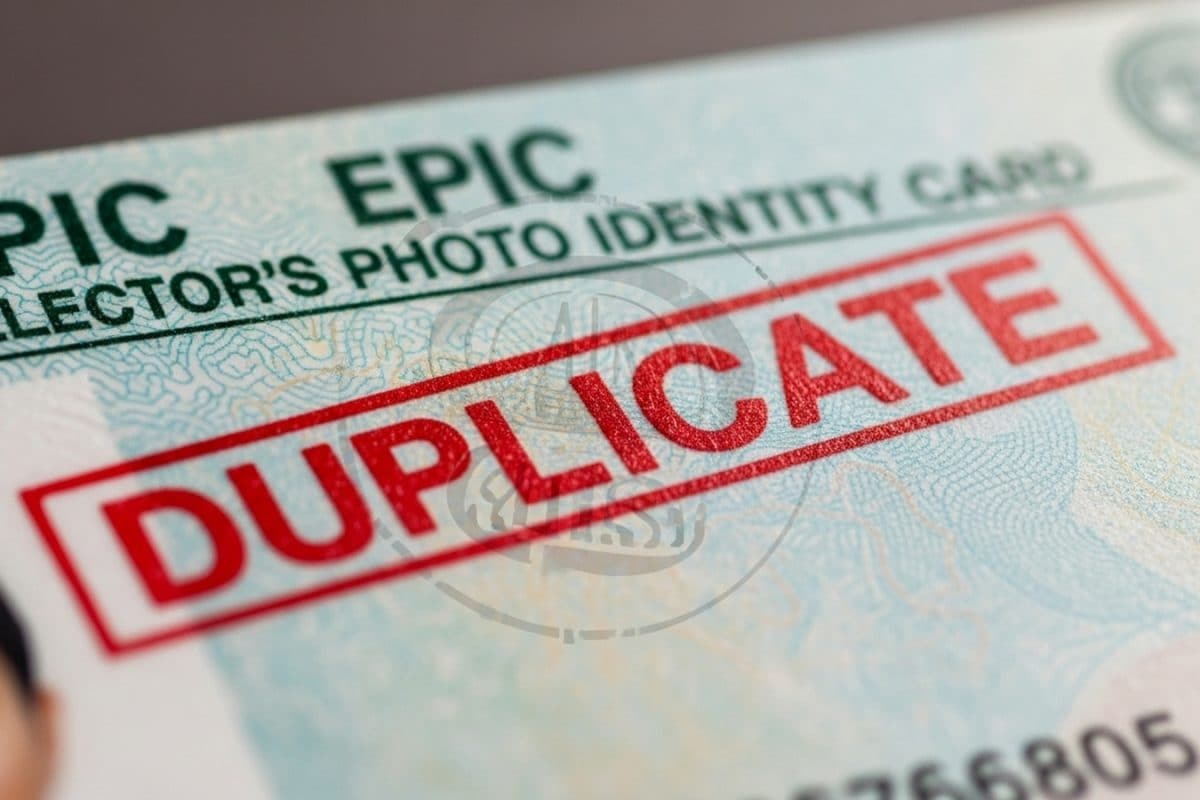

Amidst rising allegations of vote theft and manipulation in the recent 2024 Lok Sabha elections, the possibility of duplicate Electors Photo Identity Cards (EPIC) has become a central point of contention. Allegations of voter fraud have been levied by opposition parties, with the Election Commission of India (ECI) facing scrutiny over the integrity of the electoral rolls.
The Duplicate EPIC Issue
The Election Commission has acknowledged the issue of duplicate EPIC numbers, which dates back to 2000 when EPIC numbers were first introduced across states and union territories. Inconsistencies in the allocation process by Electoral Registration Officers (EROs) led to some electors being issued duplicate numbers. In March 2025, the ECI announced a three-month deadline to resolve this issue, aiming to improve the accuracy of electoral rolls and ensure each voter has only one valid identity. By May 2025, the ECI declared that it had resolved the problem of duplicate voter ID card numbers and had issued fresh EPICs to those affected. This involved searching the entire database of over 99 crore electors and issuing new cards with unique numbers to voters with the same EPIC numbers. Field-level verification confirmed that holders of similar EPIC numbers were genuine electors in different assembly constituencies and polling stations.
Allegations of Vote Theft and the ECI's Response
In the wake of the 2024 Lok Sabha elections, several opposition parties have raised concerns about voter fraud. Congress leader Rahul Gandhi has been particularly vocal, alleging "vote chori" (vote theft) and presenting what he described as evidence of electoral roll manipulation. Gandhi claimed that over 100,000 votes were stolen in the Mahadevapura assembly segment in Karnataka through duplicate entries, fake addresses, bulk registrations at single addresses, invalid photos, and misuse of Form 6.
The ECI has strongly refuted these allegations, dismissing them as an "insult to the Constitution". The Commission emphasized that the appropriate time to raise concerns about electoral rolls is during the "Claims and Objections" period before elections. The ECI shares electoral rolls with political parties and makes them available on its website to allow for scrutiny and correction of any mistakes. The ECI has also stated that it welcomes scrutiny of electoral rolls by parties and voters to help identify and remove errors.
Actions Taken by the ECI
The ECI has taken several steps to address the concerns raised about voter fraud and duplicate EPICs. These include:
Chief Election Commissioner's Stance
While specific statements from the Chief Election Commissioner (CEC) regarding the latest allegations and duplicate EPICs were not found in the provided context, the ECI's overall stance, which the CEC would likely represent, is one of strong denial of voter fraud and a commitment to electoral roll integrity. The ECI maintains that its processes are transparent and follow strict legal guidelines, and that concerns should be raised through the proper channels and at the appropriate time.
Conclusion
The issue of duplicate EPICs has been addressed by the ECI, with measures taken to ensure unique identification for all voters. However, allegations of vote theft and electoral manipulation persist, with opposition parties questioning the integrity of the electoral process. The ECI has refuted these allegations and emphasized the importance of adhering to established procedures for raising concerns about electoral rolls. The debate surrounding duplicate EPICs and voter fraud highlights the need for continuous vigilance and transparency in maintaining the integrity of India's electoral system.